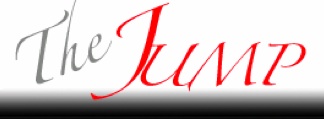Rhetoric-centric journals are popping up all over the web these days. Take note of the newcomers:
The Journal of Undergraduate Multimedia Projects (JUMP) “is an electronic journal dedicated to 1) providing an outlet for the excellent and exceedingly rhetorical digital/multimedia projects occurring in undergraduate courses around the globe, and 2) providing a pedagogical resource for teachers working with (or wanting to work with) ‘new media.’ The journal is designed to be not only a repository for quality multimedia scholarship—bringing together some of the most rhetorically creative and rhetorically impactful works produced/composed by our undergraduates—but also, unlike its digital brethren (i.e., mega repositories like YouTube), it seeks to also offer a critical perspective” (from “about The Jump“).
Present Tense: A Journal of Rhetoric in Society “is a peer-reviewed, blind-refereed, online journal dedicated to exploring contemporary social, cultural, political and economic issues through a rhetorical lens. In addition to examining these subjects as found in written, oral and visual texts, we wish to provide a forum for calls to action in academia, education and national policy. Seeking to address current or presently unfolding issues, we publish short articles of no more than 2,000 words, the length of a conference paper” (from “about Present Tense“).
Relevant Rhetoric: A New Journal of Rhetorical Studies “is a refereed online journal created to publish pieces of academic rhetorical criticism that are of value not only to academic scholars and historians interested in persuasion, but also to the educated lay-public. The journal seeks to further our understanding of and conversation about modern persuasive practices with the largest possible audience” (from their “about” page). “The emphasis of Relevant Rhetoric: A New Journal of Rhetorical Studies is on the context of discovery rather than the context of justification. This means that the writing and editorial conventions practiced by most academic journals is modified so that the focus of each article is on the author’s findings, conclusions, interpretations, or suggestions, rather than previous literature and research methods” (from their submissions page).




Pingback: harlotofthearts.org » Blog Archive » The Canary in the Coal Mine?